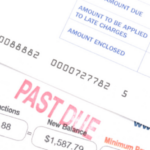Cons Of Resolving Your Debt On Your Own
Many people try to resolve their credit card debts on their own.
It takes a lot of hard work and patience to resolve debts and but it does sometimes work. Yet, if done incorrectly the consequences of dealing with debt collectors and other negative credit reporting can outweigh the benefits of trying to resolve your debt on your own. Here are some red flags to look out for when trying to resolve your own credit card debt, student loan debt and delinquent bills without professional help.
- Not getting the right paperwork: You may feel excited when you resolve your first debt on your own. But if you hang up the call and never receive anything in writing, you may have not gotten a debt settlement at all. Make sure anything you negotiate is in writing from the creditor before you make any payment.
- Missing a creditor payment: When resolving your debts on your own you have to be very careful to make the payments on time. Whether you did not receive the settlement terms in writing or you simply forget to make a payment, you can and most likely will lose the settlement if you miss a payment on your debt settlement agreement. If this occurs you may have to pay the original balance and it is unlikely that the creditors will negotiate another settlement with you.
- Tax consequences: Depending on your financial situation, any savings you get from resolving a debt on your own can be considered income and taxable. Your creditor can report the settled debt to the IRS, which the IRS considers income, unless you are “insolvent”. Insolvency is when your total debts are more than the fair market value of your total assets. Talk to a tax professional to find out if you qualify for this exception and be aware of how settling your debt impacts your taxes.
- Credit report issues: When you are working with a creditor, bank or law firm and trying to resolve debt on your own you have to be aware of how resolving debt impacts your credit. Simply put, the creditor may not report to the credit bureaus and your credit report that you settled the debt with them. Until the creditor does report the debt to your credit report, it can still show as outstanding and overdue debt on your credit report. This can further impact your credit score and can be a big mess.
If you are looking to resolve your debts on your own, make sure you do research and consider looking into professional help. A professional law firm will have a long-lasting relationships with your creditors and usually be able to get a better settlement than a consumer. It’s one of those areas that you do not want to be penny wise and pound foolish with.


